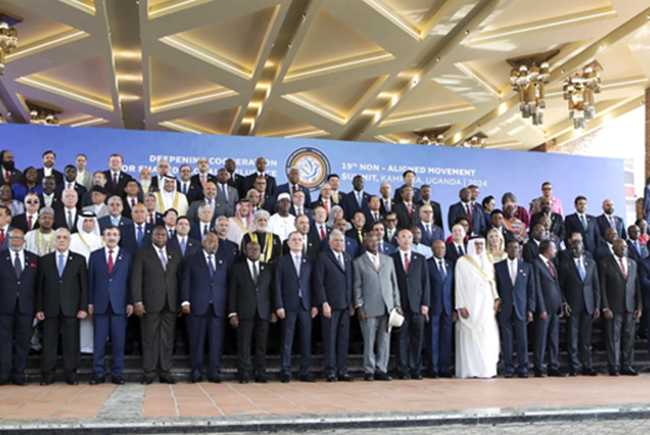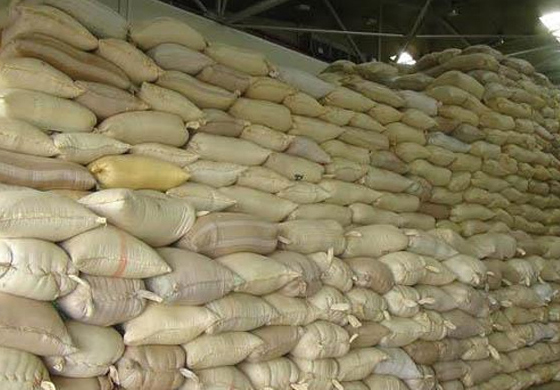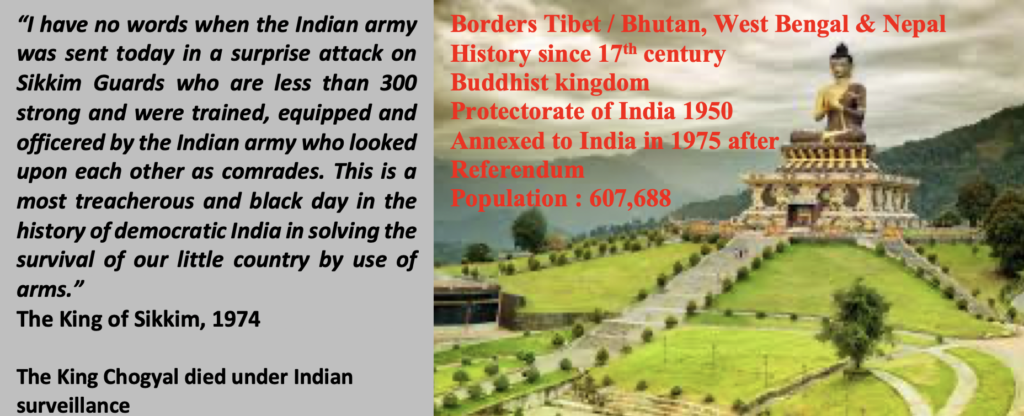Courtesy Hiru News
Colombo, January 19, 2024 – An International Monetary Fund (IMF) mission led by Peter Breuer visited Sri Lanka from January 11 to 19, 2024, to assess recent macroeconomic developments and progress in implementing economic and financial policies under the Extended Fund Facility (EFF) arrangement. At the conclusion of the mission, Peter Breuer issued a statement highlighting positive signs in Sri Lanka’s economic reform program. Here are the key points from the statement:
Economic Recovery Signs: Real GDP recorded a positive growth of 1.6 percent year-on-year in the third quarter of 2023, marking the first expansion in six consecutive quarters. Shortages of essentials have eased, and inflation remains contained.
Improved Fiscal Revenue and Reserves: Gross international reserves increased by USD 2.5 billion during 2023, and preliminary data point to improved fiscal revenue collections during the fourth quarter of 2023.
Challenges and Reform Momentum: While acknowledging the improvements, challenges remain, and sustaining the reform momentum is crucial to rebuilding confidence and ensuring the recovery benefits all citizens.
Progress on Debt Sustainability: Commendable progress has been made in putting debt on a path toward sustainability, including the execution of domestic debt restructuring. Swift completion of final agreements with official creditors and resolution with external private creditors is deemed critical.
Fiscal Consolidation and Tax Policy Measures: Urgent progress towards introducing a progressive property tax is emphasized for fair burden-sharing and sustaining revenue-based consolidation. Tax policy measures should be accompanied by strengthening tax administration, removing tax exemptions, and actively eliminating tax evasion.
Monetary Policy and External Buffers: Future monetary policy decisions should remain prudent to anchor inflation expectations. Rebuilding external buffers through strong reserve accumulation is crucial.
Financial Sector Stability: Urgent finalization of amendments to the Banking Act, implementation of the bank recapitalization plan, and strengthening the financial supervision and crisis management framework are highlighted for financial sector stability.
Governance and Transparency Reforms: Adoption of an action plan for implementing recommendations in the IMF Governance Diagnostic report is imperative. An enabling environment for governance and transparency reforms is considered key to bolstering public confidence.
Assessment and Support: Progress in meeting key commitments under the IMF-supported program will be formally assessed in the context of the second review of the EFF arrangement alongside the forthcoming 2024 Article IV consultation assessing Sri Lanka’s economic health.
The IMF team expressed gratitude for the collaboration with the Sri Lankan authorities during the mission and reaffirmed their commitment to supporting Sri Lanka for a full economic recovery from the crisis.
The statement reflects a nuanced evaluation of Sri Lanka’s economic landscape and emphasizes the importance of continued reforms to ensure sustained recovery and address the challenges ahead.
The full text of the statement issued by Peter Breuer is given below;
The economic reform program implemented by the Sri Lankan authorities is yielding the first signs of recovery. Real GDP recorded a positive growth of 1.6 percent year-on-year in the third quarter of 2023, the first expansion in six consecutive quarters. Shortages of essentials have eased, and inflation remains contained. Gross international reserves increased by USD 2.5 billion during 2023, and preliminary data point to improved fiscal revenue collections during the fourth quarter of 2023. However, challenges remain as these improvements need to translate into improved living conditions for Sri Lanka’s people.
In this context, sustaining the reform momentum and ensuring timely implementation of all program commitments are critical to rebuilding confidence and putting the recovery on a firm footing that will benefit all people. Swift progress towards the introduction of a progressive property tax is key to ensuring fair burden sharing while sustaining revenue-based consolidation. Tax policy measures need to be accompanied by strengthening tax administration, removing tax exemptions, and actively eliminating tax evasion to make the reforms more sustainable and to further build confidence among creditors to support Sri Lanka’s efforts to regain debt sustainability.
Building on the Central Bank of Sri Lanka’s success in taming inflation, future monetary policy decisions should remain prudent with a focus on keeping inflation expectations well anchored. Against continued uncertainty, it remains important to continue rebuilding external buffers through strong reserve accumulation. Protecting the poor and the vulnerable through improved targeting and better coverage of cash transfers remains critical.
To safeguard the stability of the financial sector and bolster its capacity to support economic growth, the authorities need to urgently finalize amendments to the Banking Act in line with their commitment under the IMF-supported program, implement the bank recapitalization plan, and strengthen the financial supervision and crisis management framework.
Following the publication of the IMF Governance Diagnostic Report, it is now imperative for the authorities to adopt their own action plan for implementing the recommendations in the report beyond the priority commitments under the EFF arrangement. At the same time, ensuring an enabling environment for governance and transparency reforms to take place is key to bolstering public confidence and facilitating the implementation of these important efforts.
The authorities have made commendable progress with putting debt on a path towards sustainability. The execution of the domestic debt restructuring was an important milestone. A swift completion of final agreements with official creditors and reaching a resolution with external private creditors remain critical. Progress in meeting key commitments under the IMF-supported program will be formally assessed in the context of the second review of the EFF arrangement alongside the forthcoming 2024 Article IV consultation assessing Sri Lanka’s economic health.
The IMF team held meetings with President and Finance Minister Ranil Wickremesinghe, Central Bank of Sri Lanka (CBSL) Governor Dr. P. Nandalal Weerasinghe, Speaker Mr. Mahinda Yapa Abeywardana, Minister Mr. Kanchana Wijesekera, Minister Mr. Wijeyadasa Rajapakse, State Minister Mr. Shehan Semasinghe, Secretary to the Treasury Mr. K M Mahinda Siriwardana, Governor of Northern Province Mrs. P.S.M.Charles, Governor of Eastern Province Senthil Thondaman, and other senior government and CBSL officials. The IMF team also met with Parliamentarians, representatives from the private sector, civil society organizations, and development partners.
We would like to thank the authorities for the excellent collaboration during the mission, including during the mission’s visit to the Northern and Eastern provinces. This visit enriched the mission team’s understanding of the challenges as well as the potential of Sri Lanka. We reaffirm our commitment to support Sri Lanka for a full economic recovery from the crisis.







 මිනිස් පරිභෝජනයට නුසුදුසු සහල් තොගයක් මුදා හැරීමට පාරිභෝගික අධිකාරියේ අධ්යක්ෂක මණ්ඩලය අනුමැතිය දීමේ සූදානමක් ඇති බවත්, මහා පරිමාණ සුදුලූණු වංචාව සිදුකල සමාගම විසින් මෙම සහල් ආනයනය කර ඇති බවත් පාරිභෝගික අයිතීන් සුරැකීමේ ජාතික ව්යාපාරය පවසයි.
මිනිස් පරිභෝජනයට නුසුදුසු සහල් තොගයක් මුදා හැරීමට පාරිභෝගික අධිකාරියේ අධ්යක්ෂක මණ්ඩලය අනුමැතිය දීමේ සූදානමක් ඇති බවත්, මහා පරිමාණ සුදුලූණු වංචාව සිදුකල සමාගම විසින් මෙම සහල් ආනයනය කර ඇති බවත් පාරිභෝගික අයිතීන් සුරැකීමේ ජාතික ව්යාපාරය පවසයි.

